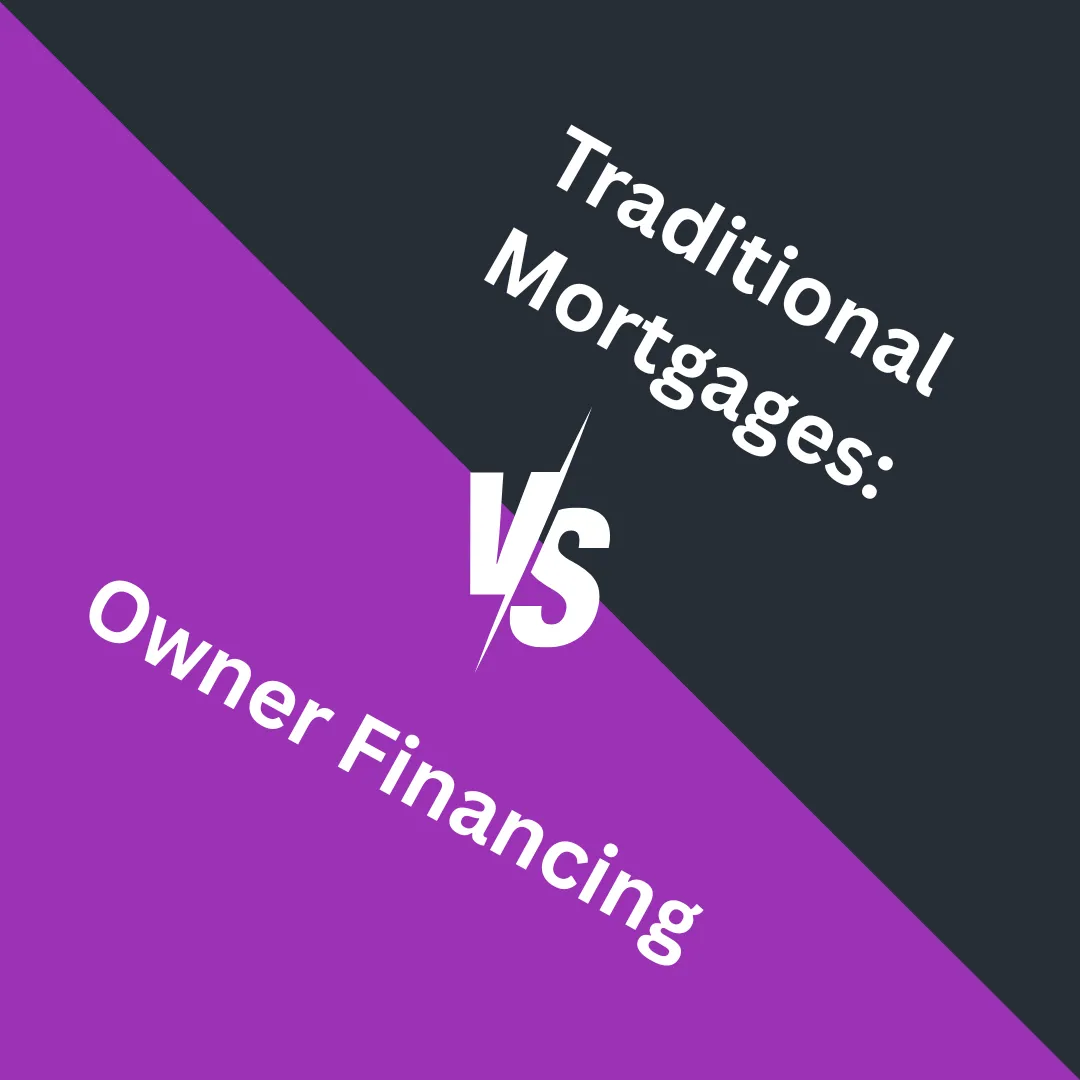
Owner Financing vs. Traditional Mortgages: Your Houston Homeownership Guide
Owner Financing vs. Traditional Mortgages: Which Path to Homeownership is Right for You?
Navigating the world of real estate can feel like deciphering a complex map, especially when it comes to financing your dream home or investment property. While traditional bank mortgages are the well-trodden path, owner financing offers a compelling alternative that's gaining traction, particularly in dynamic markets like Houston, Texas. But what truly sets these two options apart, and which one aligns best with your financial goals?
Let's break down the fundamental differences to help you make an informed decision.
The Lender: Who Holds the Purse Strings?
The most significant distinction lies in who provides the funds. With a traditional mortgage, you're borrowing from a third-party financial institution – a bank, credit union, or mortgage lender. They are the gatekeepers, setting the rules and terms.
In owner financing, often called "seller financing," the property seller steps directly into the role of the lender. You make your payments straight to them, cutting out the middleman entirely. This direct relationship is the cornerstone of its flexibility.
Qualification: Accessibility vs. Rigor
For many, this is where owner financing truly shines.
Traditional Mortgages: Banks typically demand high credit scores, extensive employment history, and detailed financial documentation. If your credit isn't pristine, or your income stream is non-traditional (think self-employed), securing a conventional loan can be a significant hurdle.
Owner Financing: The qualification process is often far more lenient. Many sellers offering owner finance in Texas prioritize your income stability, employment history, and the size of your down payment over a perfect credit score. Some even advertise "no credit check required," making homeownership accessible to a broader range of buyers. While "no credit check" doesn't mean.
no financial scrutiny, it certainly lowers the barrier to entry compared to a bank.
Terms & Flexibility: Tailored vs. Standardized
Imagine negotiating your loan terms directly. That's the power of owner financing.
Traditional Mortgages: You're largely bound by the bank's standardized policies. Interest rates, down payment percentages, and repayment schedules are typically rigid and non-negotiable.
Owner Financing: This is where customization comes into play. Buyers and sellers can directly negotiate a wide array of terms, including the down payment amount, interest rate, and payment schedule, creating an agreement that truly fits both parties' unique financial situations
Closing Costs: Savings Potential
Closing costs can add a substantial sum to your home purchase.
Traditional Mortgages: These involve various lender-specific fees, such as loan application fees, origination fees, and discount points, which can quickly accumulate.
Owner Financing: By bypassing the bank, you can often significantly reduce or even eliminate many of these lender-specific fees, leading to lower upfront costs for the buyer.
Transaction Speed: Fast-Track to Ownership
Time is money, and in real estate, it can also mean getting into your new home sooner.
Traditional Mortgages: The underwriting and approval processes can be lengthy, often taking weeks or even months to finalize.
Owner Financing: With less paperwork and no bank approvals, these transactions typically close much faster, sometimes allowing buyers to move into their new property in a matter of days.
Interest Rates: A Trade-Off
While owner financing offers incredible accessibility, there can be a trade-off in interest rates.
Traditional Mortgages: Generally, conventional mortgage rates tend to be lower, reflecting the established financial institutions' lower risk.
Owner Financing: In Texas, owner finance interest rates typically range from 4% to 10%, often averaging around 8%. This can be higher than conventional loans, but it's the price of the increased flexibility and reduced qualification hurdles.
Deed and Title Transfer: Immediate vs. Deferred
Understanding when you officially own the property is crucial.
Traditional Mortgages: The deed (title) is transferred to the buyer immediately upon closing, with the lender holding a lien on the property until the loan is repaid.
Owner Financing: This can vary. With a Deed of Trust, the buyer receives the title immediately, and the seller holds a lien. However, with a Contract for Deed, the seller retains legal title until all payments are completed, which can take years. This distinction carries significant implications for buyer protection and legal rights.
Which Option is Right for You?
Choosing between owner financing and a traditional mortgage depends entirely on your individual circumstances, financial health, and risk tolerance.
Owner financing is a powerful tool for those who may not fit the traditional lending mold, offering flexibility, speed, and a direct path to property ownership in Houston and beyond.
Traditional mortgages provide the stability and often lower interest rates associated with established financial institutions, ideal for those with strong credit and conventional income.
Regardless of your choice, always remember that real estate transactions are significant financial undertakings. Consulting with experienced real estate professionals and a qualified attorney in Texas is paramount to ensure your interests are protected and your path to property ownership is secure.
We hope this breakdown helps clarify the differences between these two popular financing methods. If you're exploring your options in the Houston real estate market, The Aida Group is here to guide you every step of the way.